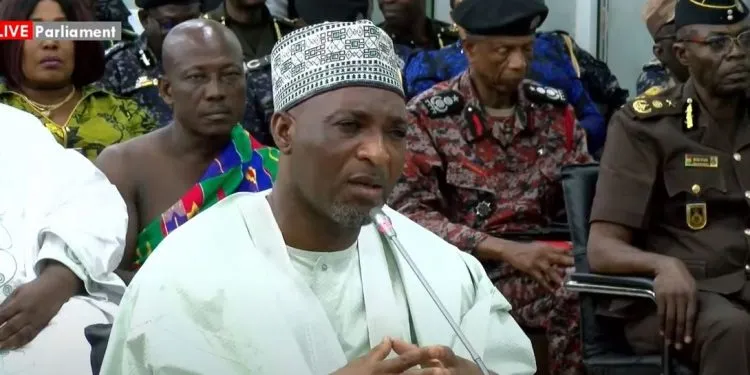Ghana’s prison system is facing a critical juncture, burdened by severe underfunding, overcrowding, and deplorable living conditions that undermine the fundamental human rights of inmates. Mohammed Muntaka Mubarak, the Minister-Designate for the Interior, has brought these pressing concerns to the forefront, highlighting the urgent need for comprehensive prison reform. His testimony before the Parliamentary Appointments Committee paints a stark picture of a system struggling to meet the basic needs of its population, raising serious ethical and practical questions about the treatment of incarcerated individuals in Ghana.
Central to Muntaka’s critique is the woefully inadequate budget allocated for inmate feeding. The current allowance of GH¢1.80 per prisoner per day is a shockingly low figure, insufficient to provide even the most basic nutritional requirements. Muntaka rightly points out the inhumane nature of this allocation, comparing it unfavorably to the care provided to household pets. This meager sum not only fails to provide adequate sustenance but also poses significant health risks, particularly in overcrowded and unsanitary prison environments where the spread of disease is rampant. Malnutrition weakens the immune system, making inmates more susceptible to illness and exacerbating existing health problems. This creates a vicious cycle of poor health and increased healthcare costs, further straining an already overburdened system.
Furthermore, the inadequate feeding allowance undermines the very purpose of incarceration, which should ideally include rehabilitation and reintegration into society. Depriving prisoners of basic necessities like proper nutrition creates an environment of resentment and despair, hindering any meaningful efforts towards rehabilitation. It fosters a sense of dehumanization, making it more difficult for inmates to reintegrate into society as productive citizens upon release. This ultimately impacts public safety and contributes to a cycle of recidivism, undermining the long-term effectiveness of the criminal justice system.
Beyond the immediate issue of food, Muntaka’s concerns extend to the broader systemic challenges plaguing Ghana’s prisons. Overcrowding is a pervasive problem, leading to unsanitary conditions, increased tension among inmates, and a heightened risk of disease outbreaks. The existing infrastructure is often inadequate to accommodate the prison population, resulting in cramped living spaces and a lack of access to basic amenities. This creates an environment conducive to violence and further degrades the physical and mental well-being of inmates. The lack of resources also hampers the provision of educational and vocational programs, which are crucial for rehabilitation and successful reintegration into society.
The Minister-Designate’s commitment to prioritize prison reform is a welcome step towards addressing these critical issues. His pledge to increase the feeding budget is not merely a matter of improving living conditions; it’s a recognition of the fundamental human rights of prisoners. Adequate nutrition is a basic human need, and denying it to incarcerated individuals, regardless of their crimes, is a violation of their dignity and human rights. Increasing the food budget is a necessary first step towards creating a more humane and rehabilitative environment within Ghana’s prisons.
However, true reform requires a comprehensive approach that goes beyond simply increasing the food budget. It necessitates a thorough review of the entire prison system, including infrastructure, staffing, healthcare, and rehabilitation programs. This involves addressing the root causes of overcrowding, such as lengthy pre-trial detentions and sentencing practices that disproportionately affect marginalized communities. It also requires investing in educational and vocational training programs that equip inmates with the skills and resources they need to successfully reintegrate into society upon release. By prioritizing rehabilitation and reintegration, the prison system can move away from a purely punitive approach towards one that promotes public safety and reduces recidivism. Ultimately, the goal of prison reform should be to create a system that upholds human rights, fosters rehabilitation, and contributes to a safer and more just society.














